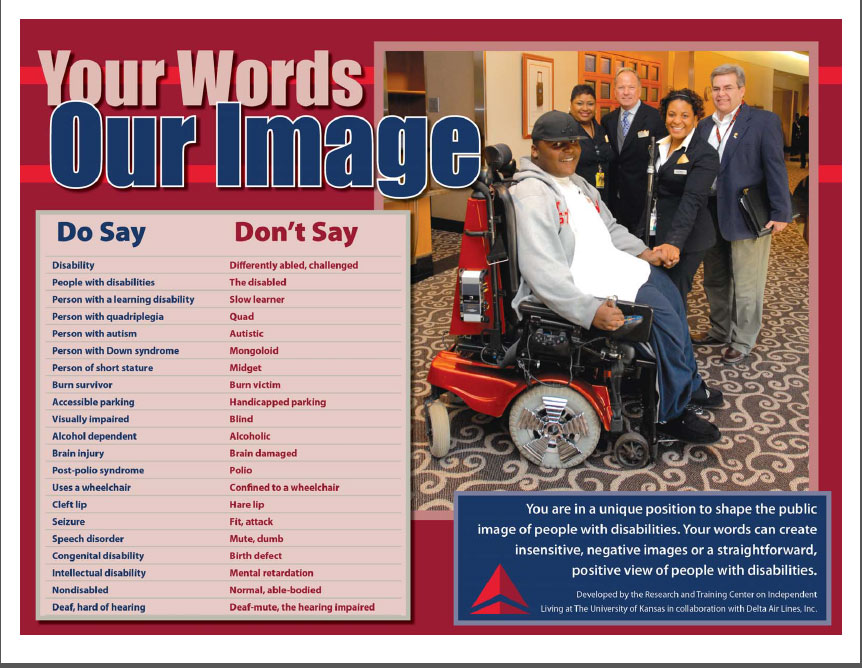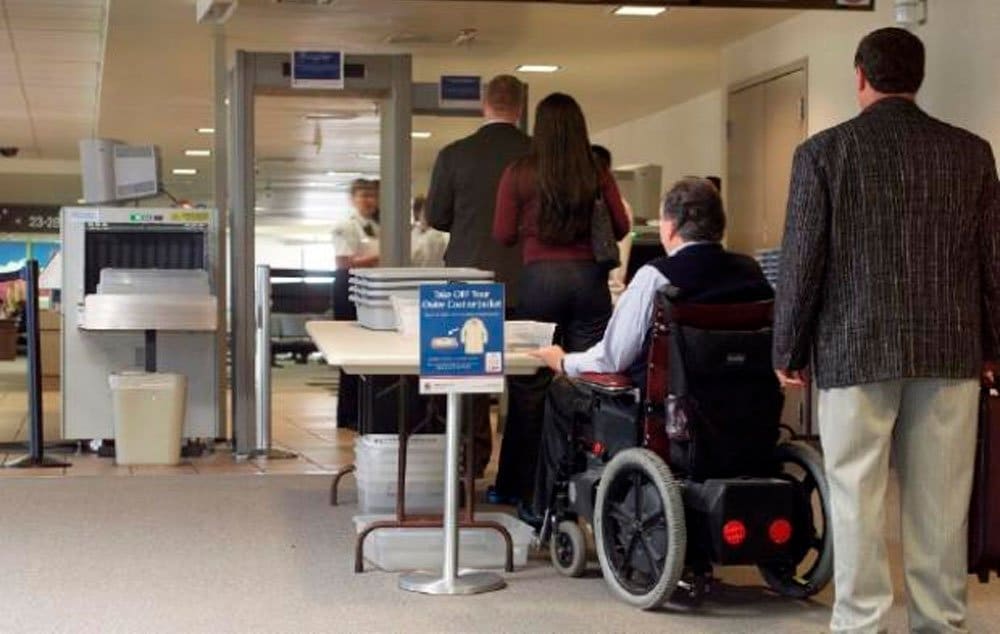While much has been said in the past about the wrongs and woes that travelers experience while flying, very little is shared in a public forum about the steps that commercial airlines are taking to improve accessibility for their customers with disabilities. Perhaps it’s easier to focus on the negative, especially during the frustrations that can arise with any commuter flight due to weather, mechanical issues or other airport issues. That’s why Wheel:Life is taking a moment to share a positive glimpse at the strides one airline in particular is making to improve your travel experience.
Delta Airlines has been helping people with disabilities take flight for over 70 years, but they have encountered some turbulence along the way. In 2011, the company was fined $2 million by the U.S. government for accessibility issues and related violations involving disabled travelers.
[In the interest of full disclosure, Delta isn’t the only airline that has been fined by the government for accessibility issues. Also in 2011, AirTran Airways was fined $500,000, JetBlue Airways was fined $600,000 and Minnesota-based Mesaba Aviation was fined $125,000 for violations related to disabled passengers. Since 2008, the U.S. Department of Transportation has fined 11 other airlines for practices against disabled passengers.]
Since then, Delta has doubled their efforts to focus on accommodating the needs of all of their passengers. This isn’t simply a public relations effort on Delta’s behalf. Every airline is required by the Air Carrier Access Act to accommodate the needs of passengers with disabilities, as the act prohibits discrimination on the basis of disability in air travel.
 Delta employees are trained to use specific, appropriate words when working with customers.
Delta employees are trained to use specific, appropriate words when working with customers.
A variety of new programs for both Delta employees and passengers have been put in place to improve travel services for the disabled community. Delta agreed to spend $1.25 million on various internal system improvements, including an automated wheelchair tracking system, a customer satisfaction survey and better compliance auditing.
Delta also agreed to install more elevators and allow customers to specify the type of wheelchair help they need when buying a ticket on the airline’s website. The airline is also installing additional ramps for boarding regional flights. The automated wheelchair tracking system will be installed at Minneapolis-St. Paul International Airport and the carrier’s other major hubs.
Additionally, the University of Kansas and Delta Air Lines are currently collaborating to improve the flying experience of people with disabilities. In the video interview below, David S. Martin, Delta Air Line’s Disability Program Manager, discusses his work with Glen W. White, PhD, the Director of the University of Kansas Research & Training Center on Independent Living. Their new project gathers feedback from passengers with disabilities to improve the airline’s policies, practices and procedures.
[youtube=http://youtu.be/P3r1l7OoS0Q]
Every October, Delta also requires its’ employees to attend continuing education courses on serving customers with disabilities. Below is a message that Delta Air Lines VP Greg Kennedy shared with Delta employees regarding the importance of Disability Awareness training:
[youtube=http://youtu.be/LrIjSC46Ze8]
Delta’s employee training programs on disability awareness, along with other internal procedures for serving disabled customers, are guided in part by Delta’s Customer Advisory Board on Disability. This board promotes accessibility for all customers, and is comprised of experienced educators and clinicians who work in the disability field.
How Delta’s Internal Focus on Accessibility Helps You
As a result of their efforts to improve services for travellers of all abilities, Delta has specially trained personnel called Complaint Resolution Officials (CROs) at every airport who are empowered to address concerns of any customer with a disability. CROs ensure federal regulations and Delta policies and procedures are properly implemented. You may ask to speak to a CRO and a representative will come to you while at the airport.
How You Can Help Delta Better Serve You
Don’t assume anything. The more information Delta or your chosen airline has about your needed services and equipment, the better they can work out a plan to make your trip stress free.
There is no fee to transport a service or emotional support animal on Delta’s domestic system and many of their international destinations. However, some destinations may have restrictions on bringing animals into their countries, so it is best to check ahead of time before making any travel plans that include service animal accompaniment.
For example, Hawaii, Great Britain and others, have quarantine laws for animals, or may not permit their entry. Delta Reservations or your travel agent can help you learn the requirements for your destination.
If you are traveling with a wheelchair, let the airline know:
- Dimensions – Height x Width x Depth
- Weight – (estimated weight okay)
- Disconnection instructions
- Battery type (wet, dry, gel, lithium ion, etc.)
Source: wheel:life



